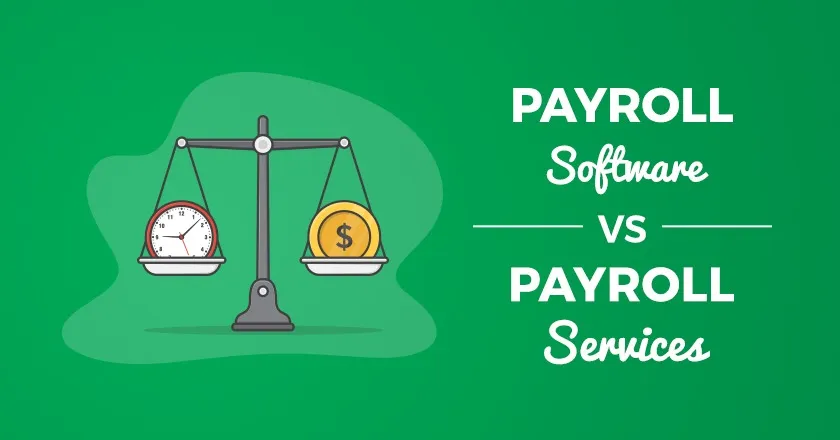Managing payroll is a crucial task for any business, but choosing the right solution can be challenging. Companies often struggle to decide between payroll software and payroll services. While software solutions offer automation and control, outsourcing payroll services can save time and reduce errors. Cost-effectiveness is a major factor in this decision, as businesses aim to balance efficiency with affordability. In this article, we will explore the differences between payroll software and payroll services, their benefits, costs, and how to choose the best option for your business needs.
Understanding Payroll Software
Payroll software is a digital tool designed to help businesses process employee payments, calculate taxes, and generate reports. It automates payroll tasks, reducing manual errors and saving time. Many payroll software solutions integrate with accounting and HR systems, offering a seamless experience. Businesses can customize their payroll processes based on their specific requirements. While payroll software requires an initial setup and ongoing maintenance, it provides long-term benefits such as improved accuracy, compliance management, and data security. Companies with in-house HR teams often prefer payroll software to maintain control over payroll operations.
Understanding Payroll Services
Payroll services involve outsourcing payroll management to a third-party provider. These services handle all aspects of payroll, including salary processing, tax filings, compliance, and employee benefits administration. Payroll service providers have experts who stay updated with tax regulations, ensuring accuracy and compliance. Businesses that lack dedicated HR or finance teams often opt for payroll services to reduce administrative burdens. While payroll services offer convenience and expertise, they come at a higher cost compared to payroll software. Small businesses with limited staff may find payroll services beneficial, while larger companies might prefer in-house solutions.
Cost Comparison: Payroll Software vs. Payroll Service
Cost is a significant factor when choosing between payroll software and payroll services. Payroll software typically involves a one-time purchase or a subscription fee, depending on the provider. On the other hand, payroll services charge per payroll cycle, often based on the number of employees. While payroll software may have an initial learning curve, it proves to be more cost-effective in the long run. Payroll services, although convenient, can be expensive for growing businesses. When deciding, companies should compare the overall expenses, including hidden fees and additional features, to determine the best fit.
Evaluating Payroll Software Pricing
Payroll software pricing varies based on features, number of employees, and provider. Some solutions offer basic payroll processing at a low monthly fee, while others include advanced functionalities such as tax compliance, direct deposit, and integration with accounting tools. Many payroll software providers offer tiered pricing plans, allowing businesses to choose a package that suits their needs. Additionally, some software providers charge extra for add-ons like benefits administration and customer support. Companies should analyze their budget and payroll requirements to find a cost-effective software solution that delivers the necessary features without unnecessary expenses.
Pros and Cons of Payroll Software
Payroll software offers many advantages, including automation, accuracy, and compliance support. Businesses have full control over payroll processing, ensuring that sensitive data remains secure. Additionally, payroll software reduces human errors and integrates with other business systems. However, it requires time for setup, regular updates, and occasional troubleshooting. Companies with limited HR resources may struggle with software management. Additionally, while software can be cost-effective, some advanced features come at an extra cost. Weighing these pros and cons can help businesses determine whether payroll software is the right choice for them.
Pros and Cons of Payroll Services
Payroll services provide businesses with expert assistance, ensuring compliance and accuracy. These services save time and reduce the burden on internal staff, allowing them to focus on core business functions. Payroll providers stay updated on tax laws and regulatory changes, minimizing legal risks. However, outsourcing payroll means businesses have less control over payroll data and may experience delays. Additionally, payroll services can be costly, especially for businesses with a large workforce. Companies should consider whether the convenience and expertise of payroll services outweigh the costs and potential loss of control over payroll operations.
Making the Right Choice for Your Business
Choosing between payroll software and payroll services depends on a company’s size, budget, and internal resources. Small businesses with simple payroll needs may benefit from affordable payroll software, while larger companies with complex payroll requirements might prefer outsourcing. Businesses with in-house HR and finance teams can leverage payroll software for greater control and cost savings. On the other hand, companies looking for a hassle-free payroll process may find payroll services more beneficial. Evaluating cost, features, and business needs will help organizations make the best decision for efficient payroll management.
